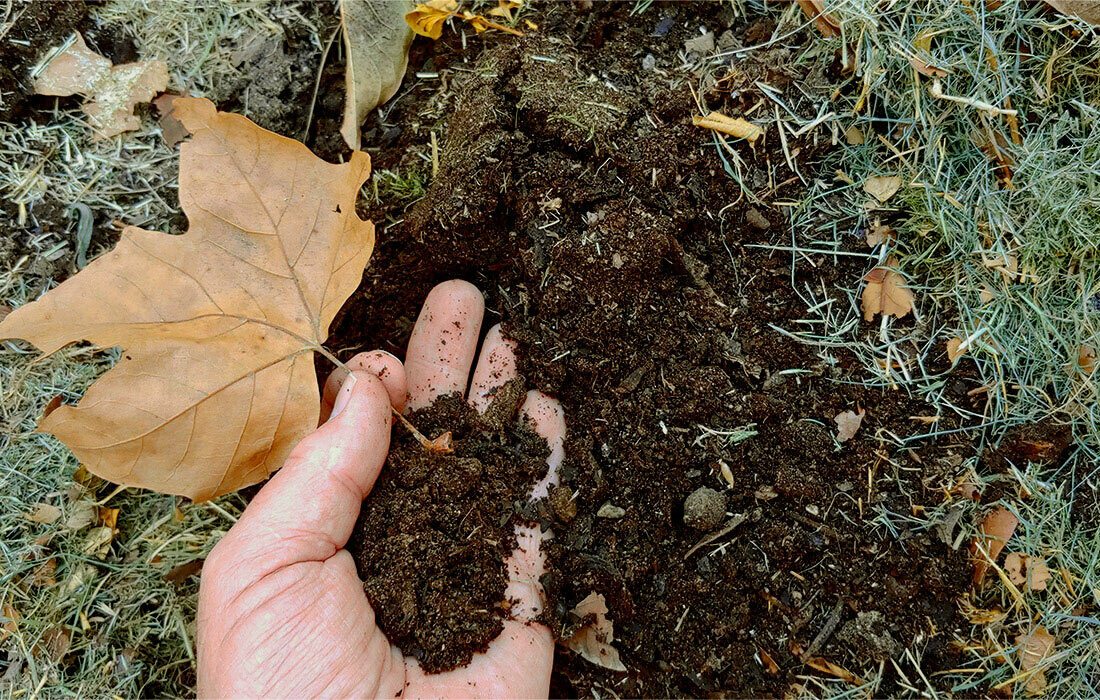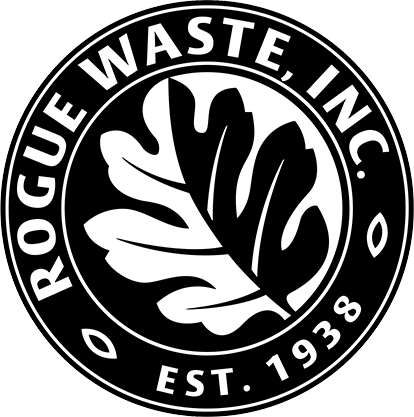“Compostable” packaging and serviceware is hurting the quality of all-natural local compost
Abstract
As manufacturers work to develop better-for-the-environment options to disposable items, “compostable” packaging and serviceware — plates, cups and utensils — have been showing up in yard debris carts and at the recycling center. Unfortunately, these materials are often not truly compostable and when mixed, they hurt the quality of all-natural compost. Reusable dishware is almost always a better choice for the environment. And green waste is best for compost.
Understanding the trouble with compostable packaging and serviceware
The leaves, grass clippings and yard debris collected throughout southern Oregon by Rogue Disposal & Recycling become a nutritious and all-natural part of Rogue Compost — certified by the Organic Material Review Institute (OMRI) for use in organic farms and gardens. The quality of these nutrient-rich composts helps create healthier and more resilient soil for use in residential lawns, flower beds, gardens and landscaping to commercial orchards, vineyards and farms. Quality compost helps the soil retain moisture and better absorb and store nutrients. It can even reduce the need for synthetic fertilizers, pesticides and herbicides.

Over the past decade, so-called compostable packaging and serviceware have been showing up in yard debris carts. Leaders from commercial composting operations around the state of Oregon, including Rogue Compost, came together to address this subject and provide the public with information. Here are some of the ways these not-really-compostable materials are limiting the benefits of successful composting:
- They don’t always compost. Not all “certified” compostable items break down as fully or quickly as they need to in order to be used for compost. As a result, compost including these materials ends up with clumps of uncomposted materials mixed in.
- Contamination is bad for compost. Too often, non-compostable look-alike products end up in the compost mix. Things like plastic forks and wax-treated coffee cups can’t be composted (or even recycled). They have to be removed from the compost stream, increasing costs and degrading the quality of the product.
- Organic farmers won’t use it. Farmers can’t use compost that contains clumps of “compostable” packaging and serviceware. Having this contaminant in the compost renders it uncertifiable for use on organic farms and gardens and can cause farms to lose their organic certification.
- Potential to threaten human and environmental health. Compostable packaging is often designed for water and grease resistance and may contain chemicals, like PFAF, that can transfer into the finished compost. From there, the chemicals can transfer to ground and surface water and be taken up by plants.
- Negative environmental impact. According to Oregon DEQ, compostable serviceware can have a larger lifetime environmental footprint than non-compostable items — using more fossil fuels, releasing more greenhouse gases, or resulting in more ecological toxins than their non-compostable counterparts due primarily to how they’re made.
Compostable packaging and serviceware sound good on paper, but in most instances, they’re not actually compostable and they contaminate the beneficial compost stream.
